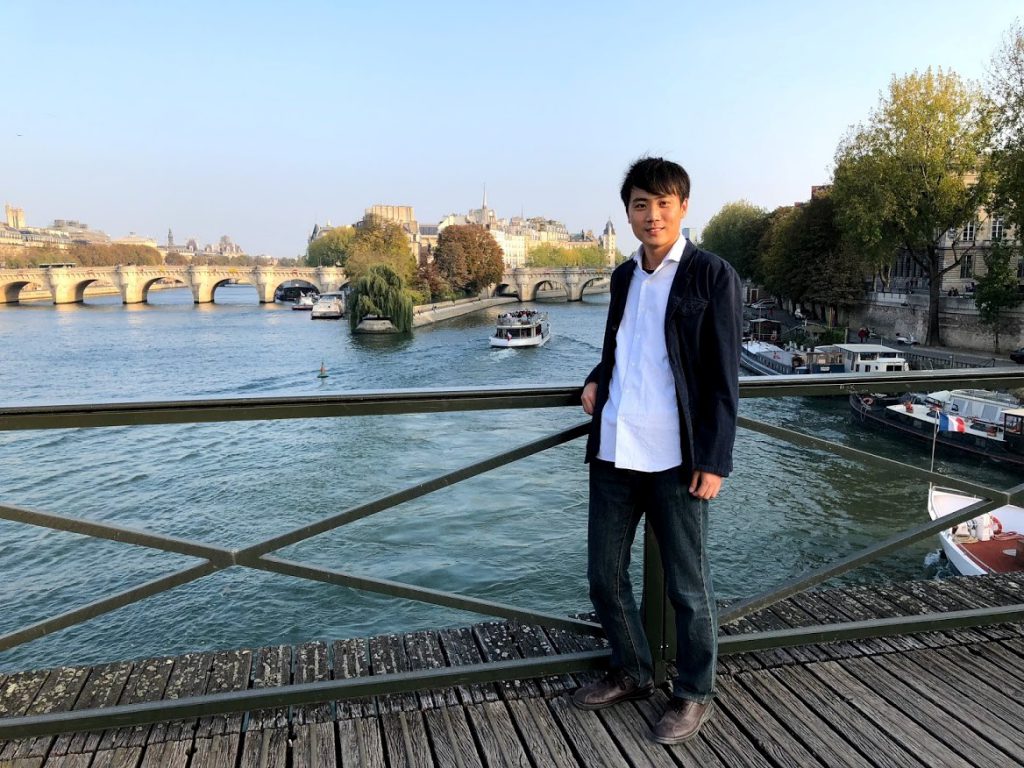[1] What I learned in Sciences Po
Sciences Po offers more practical-based classes than theoretical ones. For those who want to work for public service in the future, it is the most suitable environment for learning the skills. So, my first goal of this studying abroad was learning the basic skill of defense policy, which is related to the work I’m going to do in the future. I took the classes of intelligence, military strategy, risk analysis, EU function, and ground strategy of diplomacy. Every class was exciting and gave me new inspiration. For instance, for learning the difference between “policy failure” and “intelligence failure”, the professor gave us an assignment of writing with the topic that “Can we say that the US failure in 1979 did not predict Iranian Revolution?” By using this assignment, professor told us how to design and manage intelligence community. Of course, the reading and writing assignments are demanding and it’s difficult to adjust the difference of educational culture (*see the table below). But they as well enriched my knowledge and skills so much. What I learned there will be helpful for working as a bureaucrat.
One memorable experience was that I was chosen as one of three representatives of the class and had presentation of Japanese security ground strategy. It made me feel much pressured, but on the other hand, it was the best chance to show the result of my six-year university life. When some students made compliments about my presentation, I was more confident on what I did in GraSPP. This experience also made me feel more that my words can create the image of Japan to foreigners. Throughout my study abroad in Sciences Po, I considered more about “What is Japan?”, “What is the strength and weakness of the country?” and “How can I attract the country?”. The experience in Sciences Po helped me to see Japan from other point of view.
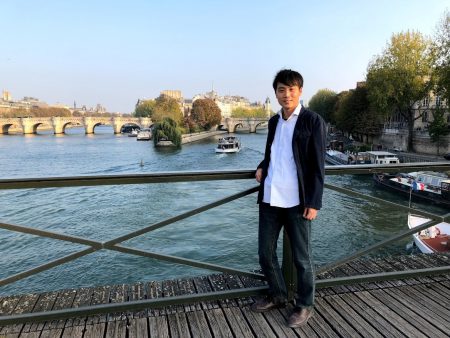
<Pont des Arts ~The most favorite place in Paris>
*The difference of general class style (Based on my experience)
| Japan (Univ. of Tokyo) | Sciences Po | US (Univ. of Washington) | |
| Assignment | Light | Middle | Heavy |
| Class intensity | 1 per week
(take many classes) |
1 per week
(take many classes) |
3-4 per week
(Take a few classes) |
| Class Style | Lecture base |
Lecture base with discussion |
Lecture and small sessions |
| Theory/Practical | Mixture |
Practical base |
Theory base |
<My Class Schedule>
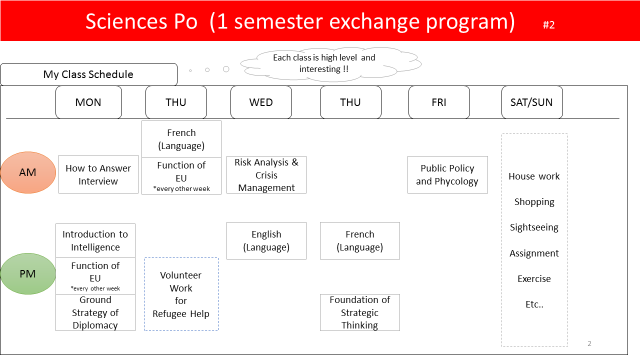
[2] As a human being: Outside the school
My second goal was to brush up my humanity thorough interacting with various students. Again, Sciences Po was a suitable place for that. What inspired me the most was that many friends and classmates had a high and clear goal of their own future. Talking with them was so inspiring that it gave me more motivation to be more ambitious. Especially through discussing so many times with my best friend I met in Sciences Po, I could make my identity and goal clearer. Not only in Sciences Po but also the environment of my dorm made me find new aspects of myself. Since Sciences Po does not have its own dorm, I lived in Cite Universitaire Maison du Japon, where majority of residents are PhD students. After the school, we talked about politics, history, arts, philosophy, and so on. It usually continued whole night. This experience gave me much inspiration and strengthened my critical thinking skill.
In addition, what I can do in Paris ―interacting with refugees, seeing many historical monuments, and learning arts in museums― enriched my life experience. Before coming to Paris, when I just finished my job hunting, I had a little confidence about myself as a man. However, during my stay, many experiences “destroyed” (in good meaning) my superficial confidence, and made me reconstruct “who I am” and “how I live my life”.
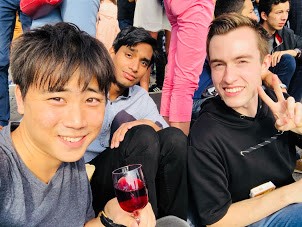
<Paris is the best place for wine lovers>
[3] Understanding “the ground”: Walking around Paris and other European countries
One of the best advantages of living in Paris was that I could easily go around other European countries. During my stay, I went to many places: Bordeaux, Loire, Brussels, Strasbourg, Frankfurt, Heidelberg, Malta, Berlin, Dresden, Prague, Vienna, Zagreb, and Sarajevo. Each place gave me new perspectives of European history and geopolitics. For example, what do you think these cities except for Malta, Zagreb, and Sarajevo have in common? Historical monuments such as famous church or palaces? Yes. But why do they have those? It is a geopolitical question. Tim Marshall pointed out the key essence of European prosperity is the “river” which allowed it to develop trade network in his book “Prisoners of Geography”. Actually, each city I mentioned above actually has a big river that was previously used for trade. Also, if you go to Sarajevo, you can understand why Balkans were called “Powder keg of Europe”. Within 1km, you can find Catholic church, Orthodox church, and mosque. It was/is the “cultural cross road” and each power wanted to affluence this region at that time. And just when I was born, it was also the place of ethnic cleansing. There are still remains of it in Sarajevo (but another surprise was that it was mostly reconstructed; I see in it as a “hope” and power of human being). These experiences gave me further consideration of history.
In addition, I could see what is happening at the ground level of refugee crisis in Paris. One unforgettable scene was that one guy from North Africa who was disappointed by European society shouted “I hate Europe!! Allah Akbar!!” and other refugees cheered up. I saw how people treat refugees is still so complicated. And through volunteer works and walking around other European cities including Paris, I felt the existence of ethnic community and their living condition plays a key role for deciding the destination for refugees. These field studies are another attraction of studying abroad in Paris.
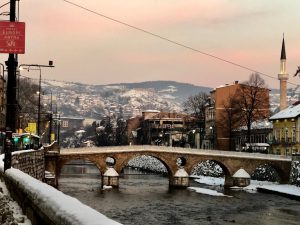
<Taken in Sarajevo>



